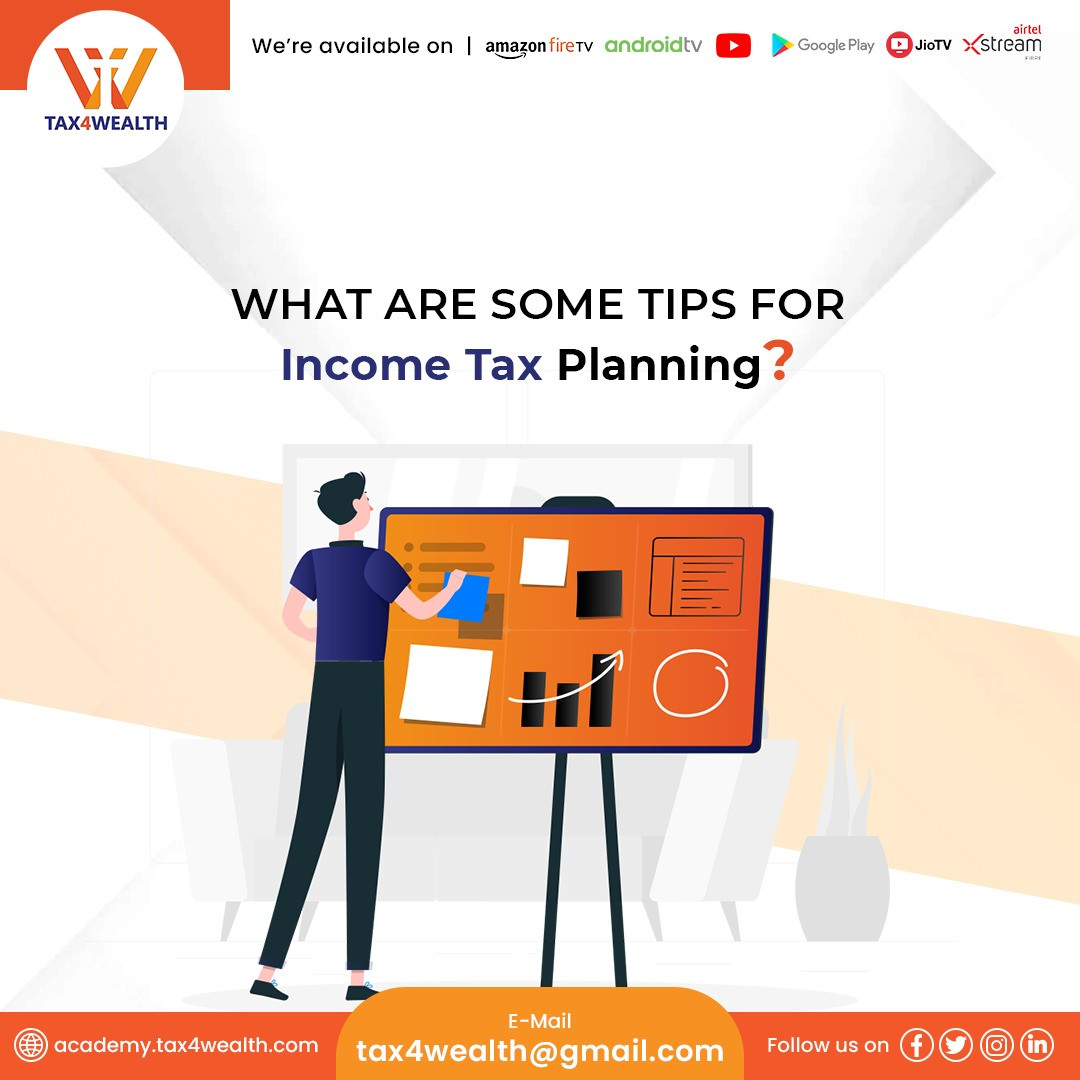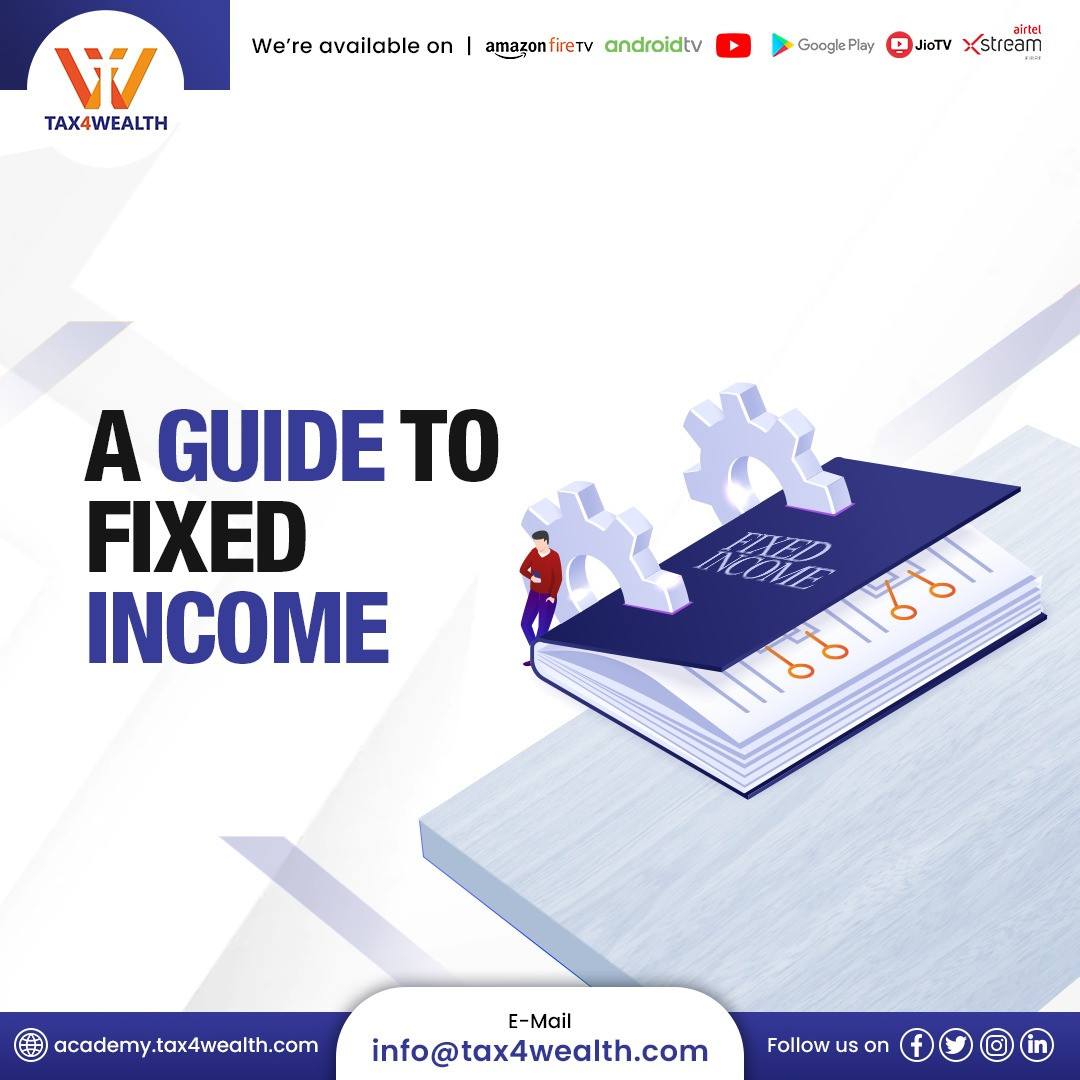
Some Important Tips for Income Tax Planning
Timely payment of income tax is an important duty of a serious citizen. The use of income tax money gives a strong foundation for the progress of the nation. It is only on the basis of these taxes that it is possible to carry out the welfare and developmental works in the country. Income tax has to be paid, but if income tax is planned on time, then while you become a participant in the development of the country, on the one hand, you can easily fulfill your needs by saving a part of your income.
What is Wrong with Income Tax Planning?
The matter of income tax planning remains in the mind of every income taxpayer. But only a few income taxpayers are able to implement income tax planning. Many times it is seen that in the last days of the financial year, the income tax is cut at a huge level, due to which one has to face a lot of financial trouble. Therefore, income tax planning becomes necessary. Also, many times income taxpayers are seen investing in the last days for tax relief, due to which they are not able to get relief in income tax due to non-submission of investment documents on time. Just as the financial year 2022-23 has started. If income taxpayers start tax planning from this time, then it will be a very pleasant fact for them.
Read blog : How to do Tax Planning its need and Objectives.
Can Get Relief in Income Tax by Investing in a Savings Account?
Under Section 80TTA of Income Tax, interest up to Rs 10000 in savings accounts in any bank, post office or cooperative society is income tax-free. Income taxpayers can take advantage of this. But keep in mind that interest earned from FDs, RDs, or corporate bonds is not income tax-free. Under the new Section 80TTB of Income Tax, the interest earned on savings of a senior citizen up to Rs 50,000 is exempt from income tax.
Discount on Health Insurance:
Under Section 80D of Income Tax, income taxpayers can get tax relief of up to 25000 on health insurance for wives, and children. If the parents are below 60 years of age, if the health insurance premium is being paid for them, then income tax relief of up to 25 000 in addition to the above 25 000 can be availed. But if the age of the parents is more than 60 years, then this income tax relief can be up to Rs 50,000. If the age of an income taxpayer and his parents is 60 years or more, then a maximum exemption of up to Rs 1 lakh can be availed through insurance premium.
On The Treatment of Diseases:
Under section 80DDB of Income Tax, income taxpayers can get income tax exemption up to a maximum of Rs. Tax exemption can be taken on medical expenses up to Rs 1 lakh in respect of the treatment of senior citizens. But keep in mind that you will have to present the bill of treatment for this. Also, it is worth noting that if the cost of treatment has been paid by the insurance company or the employer, then only after deducting that amount, the remaining treatment expenses will get tax exemption.
Income Tax Relief on Physical Disability:
If a person is disabled under section 80U of Income Tax, then he can take tax relief up to Rs 75000. In case of severe physical disability, this exemption can be up to Rs 1.25 lakh. Under section 80DD of Income Tax, the income taxpayer can get income tax relief on medical treatment, etc. of a disabled relative depending on himself.
Tax Relief by Giving Donations to Designated Organizations:
Income tax relief can be availed by giving donations to certain specified organizations under section 80G of Income Tax. This exemption can be 100 percent in some cases, 50 percent in some, without limit in some.
Discount on House Rent:
Under section 80GG of Income Tax, those people who get an income tax exemption on house rent do not get a house rent allowance along with their salary. But the condition is relaxed that the income taxpayer or his wife or minor child should not have any residential property.
Income Tax Relief on Loan for Higher Education:
Income tax relief can be availed on loans taken for higher education under Section 80E of Income Tax. This loan can be given to the income taxpayer, his wife, children, or any student whose legal guardian is the income taxpayer. Tax exemption can be availed for 8 years from the date of commencement of repayment or till the full interest is paid, whichever period ends earlier.
Relief on investment in New Pension Scheme:
Under section 80CCD(2) of the Income Tax Act, the employee gets the benefit of tax exemption on investment in NPS up to 10 percent of his basic salary.
Provident funds are completely tax-free:
Contribution to provident fund is completely tax-free for any income taxpayer. In this, with the benefit of tax exemption on investment, no tax has to be paid on the income earned from the return of Rs.
Relief on PPF:
PPF accounts can be opened in banks and post offices. In this, tax relief can be claimed on investments up to a maximum of Rs 1 lakh annually for the current financial year. It has a lock-in period of 15 years. However, the investor is allowed to withdraw after seven years. The loan can also be taken on this account after the third financial year. The returns on maturity are completely income tax-free.
Relief on National Savings Certificate:
National Savings Certificate (NSC) can be considered the safest investment. National Savings Certificates provide tax deduction under section 80C of Income Tax.
Tax Relief on FD:
Fixed deposits in banks and post offices are a better option for tax relief. The interest rates on FDs are determined by the prevailing market conditions. The benefit of tax exemption is available on FDs with a lock-in period of a minimum of five years.
Relief on Tuition Fees:
Tax relief under section 80C of the Income Tax Act can be availed on the payment of tuition fees at the time of admission and thereafter for full-time education of children in any school, college, or university in the country. This claim can be made only on the tuition fee of a maximum of two children. But keep in mind that income tax relief cannot be availed on payment of school development fees or other charges.
Relief on ELSS:
Equity Linked Savings Scheme is primarily a mutual fund scheme. Investment in this starts with a minimum of Rs 5000. In this, tax exemption can be availed on investments up to Rs 1 lakh annually.
Relief on Home Loan:
Under Section 80C of the Income Tax Act, a rebate of up to one lakh can be given on the repayment of the principal amount of the loan. Apart from this, a deduction of up to Rs 1.5 lakh can be given on the interest repayment of a home loan under section 24 of Income Tax.
Relief from Insurance:
Tax deduction up to Rs 1 lakh can be availed on premiums made by the income taxpayer for self, wife, or children under life insurance cover under section 80C of the Income Tax Act.
In this way, it is better to brainstorm about income tax planning in time. Due to this, the income taxpayer also gets huge financial benefits.
For more information visit
No comments yet, Be the first to comment.













